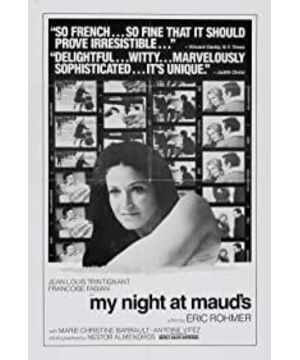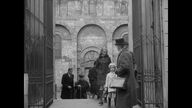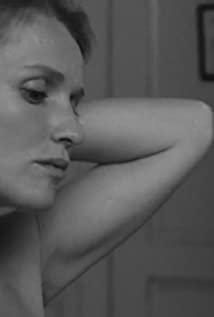This honesty doesn't mean not lying to others or hiding things, it means being honest with yourself. Knowing what you want and what your standards are, once established, is equivalent to erecting a wall for yourself. And, constantly using their own behavior to add bricks and bricks to this wall, trying to maintain the consistency of words and deeds, that is, to convince yourself that all this experience is worthwhile, and by extension, the reason why our life is what it is now , all have clear reasons, constant meaning and cause and effect. In other words, in this specific story, the male protagonist has his own preconceived religious beliefs about love.
For the male protagonist, it is impossible to overthrow himself like overthrowing God.
From the opening paragraph where the two men discuss Pascal, it is this habit of the male protagonist that is reflected. "Probably speaking, even if there is a 10% probability, there is still the greatest success lurking" (the effect of the lines), according to our Chinese saying, "You have to believe before you can get it."
He trusted a person who also believed in religion . The woman (imaginary), blond, and having a love relationship and marriage with such a woman is his most ideal and happy ending, which is also in line with his "religious view".
Therefore, in Mude's house, what he faced was not the temptation of the body, but the conflict and challenge of reason and belief. First of all, he already has a woman in his heart that he accidentally glimpsed in the church (although there is little hope of seeing each other again, and the other party does not know whether he is married or not), and secondly, he must convince himself that if he sleeps with the Mude in front of him and then In love, it must be the unity of both body and mind, and it must conform to his own "moral sense". That's why the casual Makutoku calls him "dumb," his stubbornness and pedantic rigidity are endearing though.
When I read this story for the first time a few years ago, I felt that the ending was superfluous. At that time, I felt that it is not just such a story between gains and losses, but also mixed with coincidences and some mysterious inevitability. Can't it end when the male protagonist gains love? ? Why even break down a more dramatic interpersonal layer and make it look like a fully seductive melodrama?
Now from the above perspective, I didn't understand it back then, and I didn't read enough and still lacked brains. The ending is clearly intriguing and indispensable, even crucial: the hero is lucky to make what he sees as the "right" choice (he says he's consistently lucky), misses a night of sexual seduction, misses The beautiful and hot Mude, but miraculously found true love the next day and married a blond Catholic woman of her dreams. He also insisted on confessing the night of the Mude family to the other party (this confession is not only a religious proof of love, but also wants to tell the other party his persistent love belief).
However, the most interesting thing is that the wife he loves deeply, the gift of persistence and sincerity bestowed on him by God, although he seems to have the same religious sense and moral values as him, has concealed the most important fact from him—— ---Her relationship with Mude's ex-husband-----because it was regarded as a stain on her image, she firmly rejected all his confessions, she didn't care whether he had sex with Mude or not (Even if it happened, she wouldn't think it was very important), it was actually to prevent him from digging deeper. And her thoughts, her dishonesty, he woke up only on the beach at the end. Everyone in the story knew this fact, but everyone kept the "saint" from him.
We saw the night when the hero and Mude were at home, but that night, what happened between the blond female believer and her lover, Mude's ex-husband?
How did this dramatic night decide a self-righteous marriage?
This allegory, which makes the male protagonist realize but only has a wry smile, is the real core of the story.
View more about My Night at Maud's reviews










